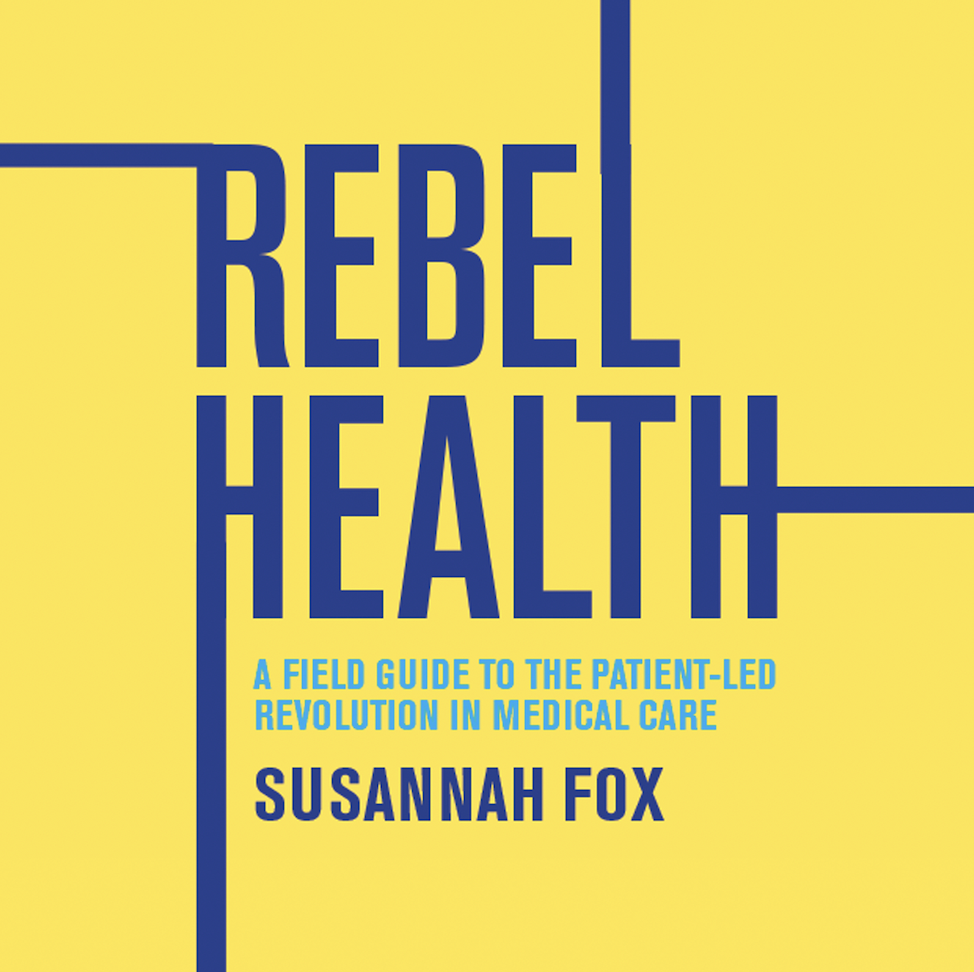
Deborah Kalb’s blog is a treasure chest full of Q&As with authors and illustrators and I’m honored to now be part of it.
1. What inspired you to write Rebel Health, and how was the book’s title chosen?
As a researcher, I spend time in communities led by patients and caregivers who build new medical and assistive devices, come up with new treatments, and support each other’s survival, peer to peer. Working in the federal government and then as a strategist and board member for health care companies, I noticed that my colleagues in the C-suite were not aware of these pioneers and hackers who band together to get what they need. I wrote Rebel Health to introduce these groups to each other and to help everyone recognize the power of peer-to-peer health care. The title emerged as a way to express the creativity and independence of this radical health movement which is rebelling against the status quo of medical care.
2. How did you research the book, and what did you learn that especially surprised you?
I went back into my survey research and fieldwork notes from my time at the Pew Research Center to discern patterns in the way people react to a health care setback, like a life-changing diagnosis. I also gathered academic studies looking at user-driven innovation, peer-led behavior change, and the quality of health information available in patient-led communities. Then I conducted over a hundred fresh interviews to test my concepts.
The archetype of Champion was one surprise. Patients, survivors, and caregivers who managed to bring a product to market or get mainstream attention for their work continually described the difference that one person could make. That person recognized the value of their prototype or audacious, but undeveloped, ideas and gave them the funding, regulatory guidance, press attention, or access to other resources that helped them scale their concept. Champions help scrappy, patient-led teams thrive.
I was also surprised to find that there are inventors and personal scientists who, once they solved a problem for themselves, were not interested in getting public credit for their solution or even sharing it with others. My hope is that they will recognize that they don’t have to do the communications work themselves. They can find a Networker to publicize their innovation so everyone can benefit from it.
3. The psychotherapist Esther Perel said of the book, “In the age of rapid health advancements, Fox reminds us that no amount of tech can replace the support of others who have gone or are going through similar struggles—the relieving elixir of what she calls ‘just-in-time someone-like-me.’” What do you think of that description?
It is spot on. Connection is like a cool cloth on a hot forehead, like finding someone who speaks your language in a foreign country. My hope is that Rebel Health helps spread the word that you are not alone in your illness or caregiving journey. There are people who would love to help you, if only they knew how to find you. Have the courage to raise your hand and ask for help.
4. What do you see looking ahead when it comes to patient activism?
A path has been broken into health data, as people gain access to their own medical records and to the data generated by their own bodies, as in the case of diabetes devices like continuous glucose monitors. I think that path will widen as more people understand the value of real-time access to health data of all kinds.
5. What are you working on now?
I maintain a list of companies and organizations led by patients, survivors, and caregivers as a tip sheet for investors, policymakers, and journalists. I find new ones every day and would love to hear from people who have additional suggestions: https://susannahfox.com/patient-led-innovation/
6. Anything else we should know?
Today’s patient-led revolution is built on foundations dug by radical health movements of the past. Peer-to-peer health care is not new – look at Alcoholics Anonymous, Fountain House, La Leche League, the Black Panther Party’s community health services, the disability rights movement, ACT UP – but it’s accelerating and expanding thanks to the internet. It is our opportunity to learn from the rebels and heal health care.
Leave a Reply